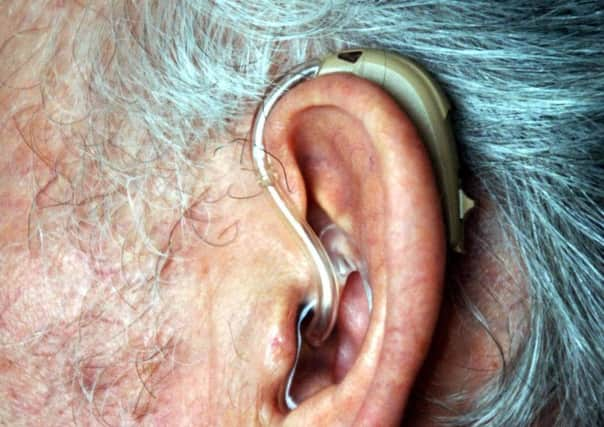Scientists investigate hearing loss dementia link


Experts believe deafness undermines working memory by making it harder to concentrate and think, with even mild hearing loss said to double the risk of dementia. Severe deafness increases the risk five-fold
Studies also indicate that hearing loss actually changes brain structure, causing shrinkage in some regions most affected by Alzheimer’s. In addition, the social isolation caused by deafness may speed up mental decline.
Advertisement
Hide AdAdvertisement
Hide AdBecause of this association, researchers at Johns Hopkins University in the US now plan to find out if better treatment for hearing loss can reduce rates of dementia.
If the connection between poor hearing aid provision and dementia is proved, it will have far-reaching implications in the UK where a leading charity has mounted a major campaign against NHS plans to ration hearing aids.
Dr Frank Lin who is leading the American study, said the issue of whether treating hearing loss could reduce the risk of cognitive decline was “the bigger and more critical question”.
In the UK, the NHS says 6.7 million people could benefit from hearing aids, but only 1.4 million (around 20 per cent) use them.
Advertisement
Hide AdAdvertisement
Hide AdPaul Breckell, chief executive of the charity Action on Hearing Loss, said there was “a significant body of evidence” showing that unmanaged hearing loss can lead to dementia.
The charity mounted a successful campaign to stop Clinical Commissioning Groups in England from cutting hearing aid provision after the North Staffordshire CCG became the first to ration them last year.
He added: “Hearing aids offer a lifeline to many, especially older people with hearing loss who would otherwise be sat at home alone unable to communicate with the outside world.
“They are a highly cost-effective intervention and are accepted to be the only viable treatment for people with adult-onset hearing loss.”